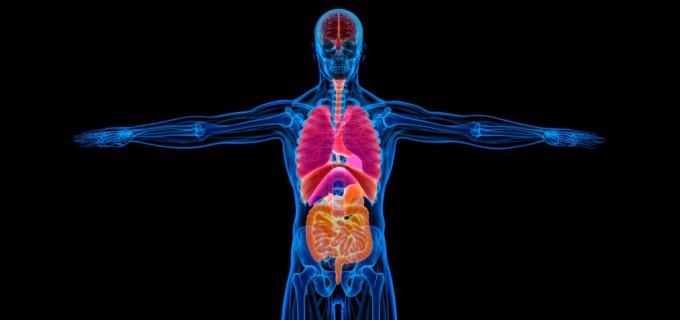Search for a doctor or hospital in your network.


Search for a doctor or hospital in your network.

Get News & Updates Directly To Your Inbox
Based on your age, gender and health, it may stay there for two hours or longer. During that time, it touches nearly every organ and system along the way.
Alcohol can affect you in the following ways.
1. Your Brain Slows
Messages travel between brain cells. When you drink, the pace of thoughts and feelings slows. The way your brain talks with the rest of your body changes. The result? You feel sleepy and uncoordinated.
2. Your Brain Shrinks
When you drink heavily over time, the structure of your brain changes. Brain cells wither, and the inner core swells. You may have trouble regulating your body temperature, and you may sleep less soundly. Mood and memory can be affected. Dementia is also associated with drinking alcohol, especially in middle-aged people.
3. Your Blood Pressure Changes
A few drinks a week can lower your blood pressure. But if you drink more, the story changes. Chronic heavy or moderate drinking — or even one episode of binge drinking — causes the brain to release stress hormones. These hormones stiffen blood vessels. Then your heart has to work harder to pump blood.
4. Your Heart Beats Irregularly
Even moderate drinking can raise the risk for a heart rhythm issue called atrial fibrillation (AFib). Irregular heart rhythm can quadruple the risk for stroke. It can also double the risk for vascular dementia and raise your risk for dying from any cause.
5. Your Blood Sugar Can Drop
Alcohol can cause low blood sugar. Sometimes this occurs right after drinking. But it may take up to 24 hours. Always eat food with alcohol, and stay alert for signs of low blood sugar (feeling sleepy or dizzy). It can be easy to confuse the symptoms with other side effects of drinking too much. If you have diabetes, check your blood sugar before and after you drink any amount of alcohol.
6. Your Body Can’t Do Other Work
Drinking keeps your body from functioning the way it should. Your body doesn’t have a way to store alcohol. So it has to work to metabolize the alcohol before it can handle other important processes.
7. Your Pancreas Is Hurt
Over time, drinking can interfere with your body’s ability to use glucose for energy. Alcohol damages cells in the pancreas, the organ that makes insulin to keep blood sugar levels in check. You may get a painful swelling called pancreatitis, which raises your risk for pancreatic cancer, diabetes and even death.
8. Your Liver Is Harmed
No organ works harder to clear your body of alcohol than the liver. In the process, the liver makes harmful toxins. Over time, cell damage from these toxins may cause a buildup of fat or scar tissue that stops your liver from working properly. You could even develop cirrhosis, a slow deterioration of the liver that’s life threatening.
9. Your Cancer Risk Rises
Experts say drinking — even a little bit — boosts your risk for some types of cancer. Seven out of 10 people with mouth cancer are heavy drinkers. Alcohol has also been linked to cancers of the esophagus, breast, liver, throat, pancreas and colon. Cell damage, changing hormone levels and toxins released when alcohol breaks down may be to blame.
10. Your Immune System Weakens
Alcohol interferes with your body’s normal defenses against bacteria and other bugs that make you sick. Your body may produce too much of some disease-fighting chemicals and too little of others. The imbalance can cause damage to some healthy tissues and leave others weak. Heavy drinkers face a higher risk for pneumonia, tuberculosis and other health issues.
When you cut back or quit drinking altogether, it lowers your risk for alcohol dependence and can improve your health in many ways. If you’re ready to make a change, try these steps:
If you worry that you may have a problem, talk with your doctor. Your doctor may provide treatment or have suggestions for referrals. If you don’t have a doctor, call the customer service number on your member ID card.
Read Prescription or Over the Counter: Follow Directions for Medicine Safety to find out how alcohol and medicine can interact in dangerous ways.
Blue Cross and Blue Shield of Montana, a Division of Health Care Service Corporation,
a Mutual Legal Reserve Company, an Independent Licensee of the Blue Cross and Blue Shield Association
© Copyright 2026 Health Care Service Corporation. All Rights Reserved.
Verint is an operating division of Verint Americas, Inc., an independent company that provides and hosts an online community platform for blogging and access to social media for Blue Cross and Blue Shield of Montana.
![]() File is in portable document format (PDF). To view this file, you may need to install a PDF reader program. Most PDF readers are a free download. One option is Adobe® Reader® which has a built-in screen reader. Other Adobe accessibility tools and information can be downloaded at https://www.adobe.com/trust/accessibility.html.
File is in portable document format (PDF). To view this file, you may need to install a PDF reader program. Most PDF readers are a free download. One option is Adobe® Reader® which has a built-in screen reader. Other Adobe accessibility tools and information can be downloaded at https://www.adobe.com/trust/accessibility.html. ![]()
![]() You are leaving this website/app ("site"). This new site may be offered by a vendor or an independent third party. The site may also contain non-Medicare related information. Some sites may require you to agree to their terms of use and privacy policy.
You are leaving this website/app ("site"). This new site may be offered by a vendor or an independent third party. The site may also contain non-Medicare related information. Some sites may require you to agree to their terms of use and privacy policy.
Powered by Verint